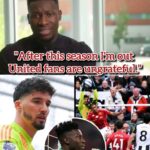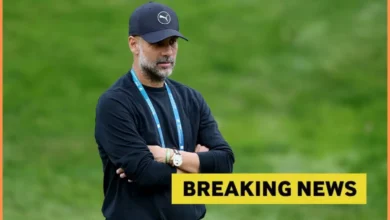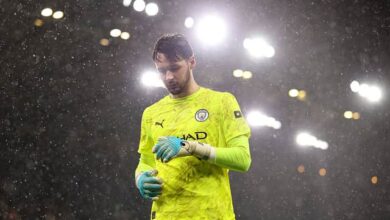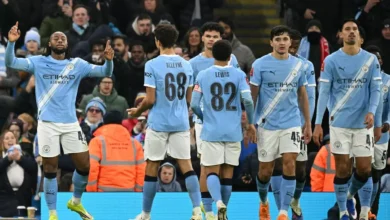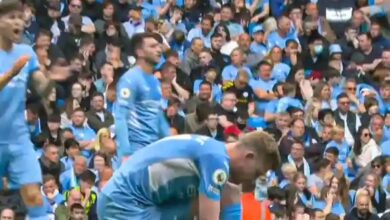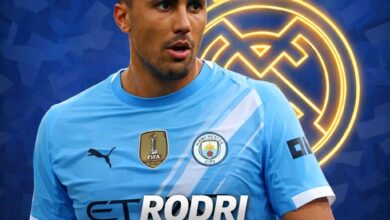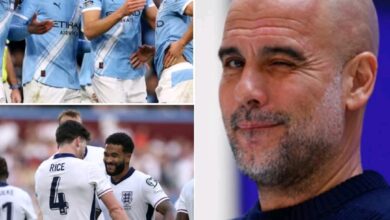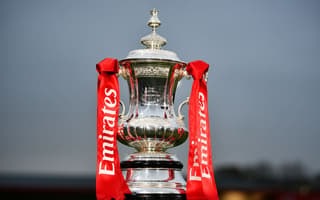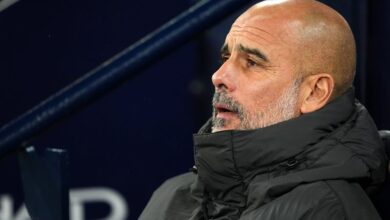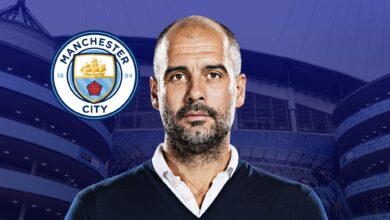What Ruben Amorim Told Andre Onana After Dropping Him from Man Utd Squad Says a Lot
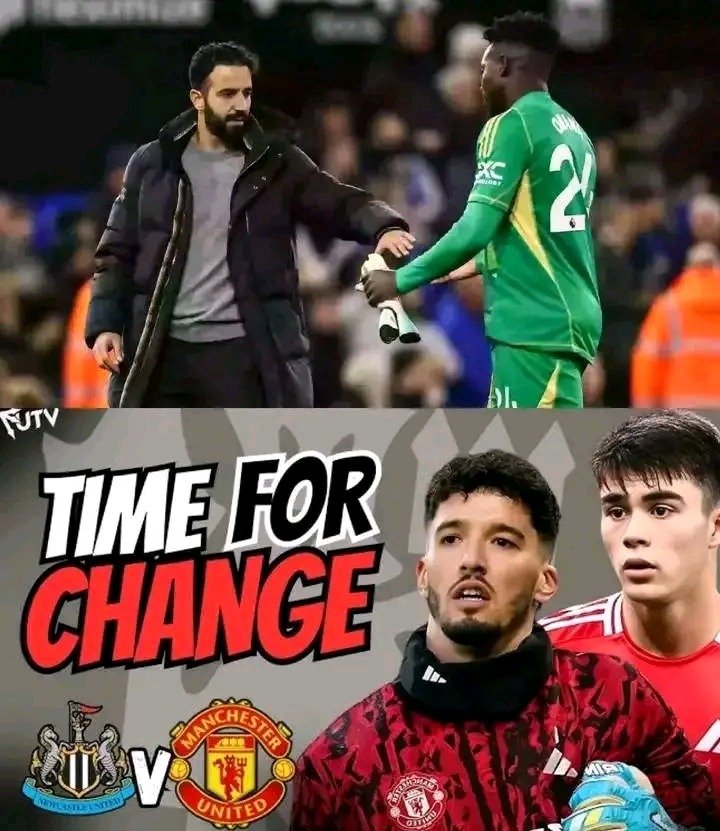
What Ruben Amorim Told Andre Onana After Dropping Him from the Manchester United Squad Speaks Volumes About His Leadership and the Club’s Mentality
In the high-pressure world of elite football, where every mistake is magnified and every performance scrutinized, a manager’s response to adversity often reveals more about their leadership than any tactical masterclass ever could. This week, Manchester United’s manager, Ruben Amorim, showed the footballing world exactly what kind of leader he is—calm, supportive, and deeply focused on the human side of the game.
The latest headlines surrounding the Red Devils were dominated not by goals or glory, but by the absence of Andre Onana from the matchday squad against Newcastle. Following a turbulent Europa League quarter-final performance, where Onana was at fault for both of Lyon’s goals in a tense 2-2 draw, the Cameroonian goalkeeper was dropped from the squad entirely. Many assumed the worst: a punishment, a falling out, or a brutal end to his time as Manchester United’s first-choice keeper. But Ruben Amorim’s explanation in the press conference told a very different story—one that speaks volumes about his values as a coach and the long-term vision he’s trying to build at Old Trafford.
Manchester United’s Europa League journey had been relatively smooth until they met Lyon in the quarter-final first leg. The match, played at Groupama Stadium in France, started with promise, but ended in frustration after two costly errors from Andre Onana gifted Lyon a draw.
The first goal came from a misjudged pass that allowed Lyon to break on the counterattack and punish United with clinical finishing. The second was even more disappointing—a weak attempt to clear a cross that resulted in a goal from a tight angle, leaving fans and pundits baffled
It was a night to forget for Onana, but one that wouldn’t be easily forgiven by fans already nervous about the team’s inconsistency this season. Though Onana had enjoyed some solid form earlier in the campaign, this performance brought back painful memories of his shaky start to life at United following his high-profile move from Inter Milan in 2023.
When Manchester United released their matchday squad for the Premier League clash against Newcastle, there was immediate buzz online: Andre Onana’s name was missing. Instead, backup goalkeeper Altay Bayındır was chosen to start, with third-choice Tom Heaton on the bench. Fans and media jumped to conclusions—had Onana been punished? Was this the beginning of the end for him at United? Speaking ahead of kickoff, Ruben Amorim addressed the elephant in the room directly. His answer was calm, respectful, and deeply thoughtful
“This decision wasn’t taken in anger,” Amorim said. “It’s not about punishment—it’s about reflection, recovery, and protection. Andre is a fantastic goalkeeper, but like every player, he is human. After a tough night in Europe, we felt it was best to give him some space to recover mentally and emotionally.” That one statement did more than explain a lineup—it laid bare Amorim’s managerial philosophy. In a world where players are often treated like commodities, Amorim’s choice to prioritize Onana’s well-being is a refreshing reminder of the human side of football.
Amorim didn’t shy away from addressing the criticism that Onana has faced. He acknowledged the mistakes made in Lyon but quickly turned the focus to the bigger picture. “Goalkeepers are under a microscope,” Amorim noted. “One mistake can change the outcome of a game, and unfortunately, when it happens on a European night, it feels even bigger. But we all make mistakes. That’s part of the game.”
The manager then sent a clear message to both the fans and the media: “I would ask for understanding. Andre didn’t become a bad goalkeeper overnight. He has been reliable for us in many matches this season, and one bad performance shouldn’t erase that.” Amorim’s defense of Onana stood in stark contrast to the often ruthless narratives we see when players underperform—especially at a club like Manchester United, where the expectations are enormous and the margin for error is razor-thin
Many assumed that dropping Onana was a reactionary move, but Amorim insisted that it was a carefully considered decision meant to help both the player and the team in the long term. “I want players to be confident,” he said. “Sometimes, the best way to help them is to take them out of the spotlight for a moment, let them breathe, let them reflect, and come back stronger.”
Indeed, Amorim’s words suggest a broader strategy—one that emphasizes mental health, team morale, and long-term growth over short-term pressure. His approach mirrors what we’ve seen from successful modern managers like Jurgen Klopp and Pep Guardiola, who understand that emotional intelligence is just as important as tactical knowledge
While the public heard Amorim’s carefully chosen words in the press room, reports from sources close to the club have revealed the conversation between Amorim and Onana was even more supportive in private.
According to those sources, Amorim personally sat down with Onana after the Lyon game. He didn’t raise his voice or assign blame. Instead, he focused on the goalkeeper’s mindset, urging him to learn from the experience rather than dwell on it. “You are still our number one,” Amorim reportedly told him. “But right now, I want you to rest, clear your head, and come back even stronger. This is not the end—this is part of your journey.”
Such words might seem simple, but for a player in a vulnerable state, they can make all the difference. By reinforcing his faith in Onana privately and publicly, Amorim is sending a message that confidence can be rebuilt—and that Manchester United is a club where players will be supported, not scapegoated
Onana’s temporary removal from the squad doesn’t just affect the goalkeeper—it has implications for the whole team. Backup keeper Altay Bayındır was called upon to step up, and all eyes were on him during the Newcastle game. United fans were eager to see whether Bayındır could provide a solid performance in the absence of their No.1. While the Turkish keeper did reasonably well, it’s clear that Amorim views Onana as his long-term choice. Bayındır’s role, for now, is to hold the fort while the club’s main goalkeeper regains his form.
More importantly, Amorim’s handling of the situation sets a tone for the entire dressing room. Players now know that mistakes won’t automatically lead to exile—but they must also accept responsibility, work hard to improve, and earn their way back. Several Manchester United players have come out in support of Onana since the Lyon match, including club captain Bruno Fernandes and defender Lisandro Martínez. Both players emphasized that football is a team sport, and one bad night should never define a player’s season.
Lisandro, who just returned to training from injury, told reporters, “We win together, and we lose together. Andre is a top professional, and we are behind him 100 percent. This kind of unity is exactly what Amorim is trying to build—a team that rallies behind its members rather than turning on them when things go wrong..
Onana’s journey is far from over. Amorim’s public and private support, the backing of his teammates, and the chance to regroup mentally may give him the foundation he needs to bounce back. Manchester United still has everything to play for this season. The Europa League semi-finals are within reach, and the Premier League top-four race is heating up. A resurgent Onana could be vital in both competitions, especially with the demanding fixture list that lies ahead.
For now, though, Onana will need to stay focused in training, work on the finer details of his game, and be ready for his next opportunity. Knowing that his manager believes in him may be the biggest motivation he could ask for. In an era where players are often judged harshly and discarded quickly, Ruben Amorim has reminded the world that compassion and leadership can go hand in hand with ambition.
By backing Andre Onana during a low moment and choosing to support rather than punish, Amorim is doing more than managing a football team—he’s building a culture. One where trust is earned, mistakes are learning opportunities, and every player feels valued. Onana’s story at Manchester United may be facing a difficult chapter right now, but with a leader like Amorim at the helm, there’s every reason to believe that redemption is not just possible—it’s expected


